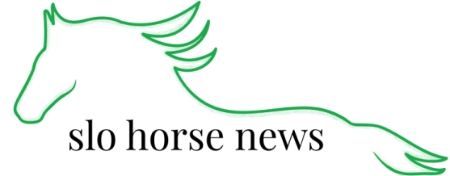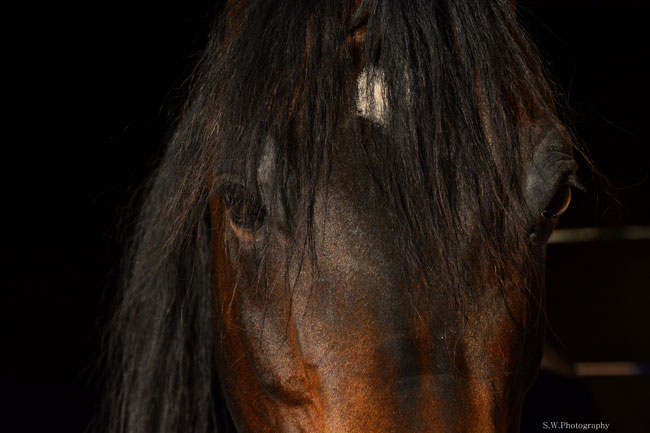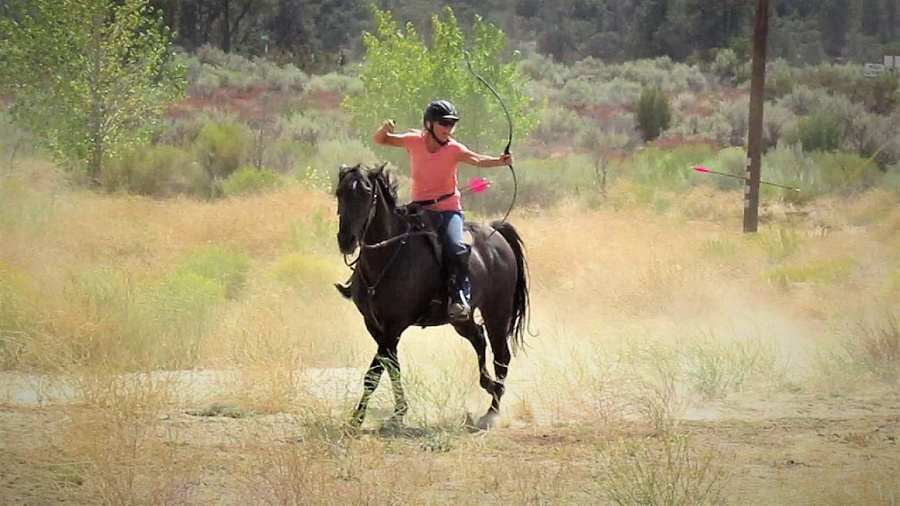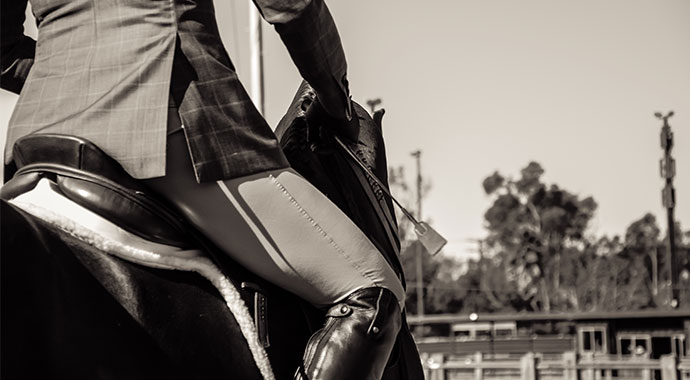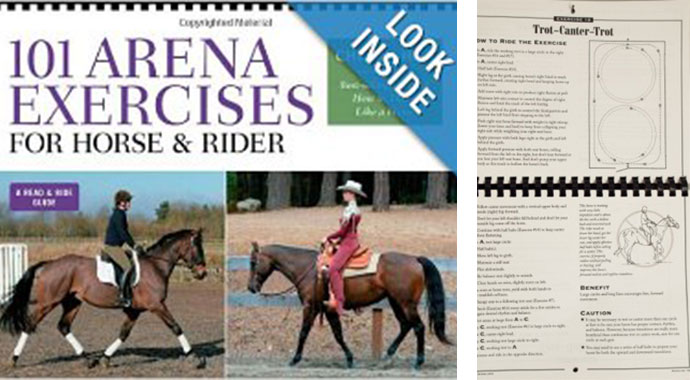A Tale of Two Horses
At the barn today, I was talking with a lady about her two horses. One is a youngster with a ton of potential and a laid back personality, while the other is an older, more seasoned ex-show horse with some quirks and a more “intense” personality. The owner is what you would call “timid”…truth be told, she is downright frightened much of the time when it comes to everything from putting her horses in the wash rack to actually getting into the saddle and heading out for a ride. One would think that the “youngster” with the laid back personality would be the better suited horse for her, right? Yet, she feels much more comfortable riding her ex-show horse, despite her many quirks. This got me to thinking that when it comes to the “right horse”, the logical choice isn’t necessarily always the best one.
So, why is it that a timid rider wouldn’t be drawn to a more laid back mount?
Probably for the same reason that often times that Thoroughbred with all the right bloodlines and conformation points to be a Triple Crown winner just doesn’t have the “heart” of a racehorse. You can’t always apply logic to choosing the “right horse”; while it takes a bit of reasoning and analytical prowess, there’s also that unexplainable aspect of things that just draws us to certain animals over others. The “best choice” isn’t always the “right choice”.
How Do We Choose the Right Horse?
With the above in mind, you may be left tripping over how to go about finding your dream horse. Is there even such a thing? Perhaps I may be “waxing philosophical” here, but I think that we have to use our hearts as well as our minds – equally – when we choose a horse.
- First, we have to know what we want to do in terms of riding…if the goal is to compete in Reining, we should obviously avoid the local Warmblood breeder, and if we want to get out on the Eventing circuit, a short coupled Quarter Horse with a low neck and slow lope probably wouldn’t work out. This is not to say that there are exceptions in every breed, but we should start our search in the right vicinity, at least.
- Beyond that, a little finesse must be introduced.
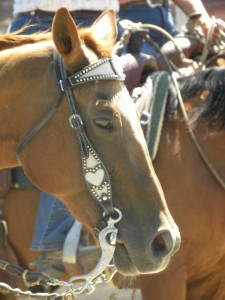 A friend of mine was looking for a new Reining mount and a trainer contacted her with a lead on the “perfect horse”. This guy had it all – a flat, fast turn-around, a low necked lope, a smooth lead change and a dead straight stop that left me salivating. She went to see the horse, and he was sweet as pie on the ground. As my friend watched him being worked she was about ready to pull out her checkbook on the spot. However, when she got up into the saddle, something just wasn’t right; she couldn’t seem to find his rhythm, he fought her leg position, she didn’t feel comfortable and he spent the entire ride with a tight mouth and ears cocked back in her direction as if he was waiting for her to do something wrong. Another friend got on the horse and had what would have been one of the higher scoring rides I’ve seen if they had been in the show pen – things just clicked. My friend went back twice more, and both times it was the same outcome. It wasn’t the horse, and it wasn’t the rider, the truth was that they just weren’t the “right pair”.
A friend of mine was looking for a new Reining mount and a trainer contacted her with a lead on the “perfect horse”. This guy had it all – a flat, fast turn-around, a low necked lope, a smooth lead change and a dead straight stop that left me salivating. She went to see the horse, and he was sweet as pie on the ground. As my friend watched him being worked she was about ready to pull out her checkbook on the spot. However, when she got up into the saddle, something just wasn’t right; she couldn’t seem to find his rhythm, he fought her leg position, she didn’t feel comfortable and he spent the entire ride with a tight mouth and ears cocked back in her direction as if he was waiting for her to do something wrong. Another friend got on the horse and had what would have been one of the higher scoring rides I’ve seen if they had been in the show pen – things just clicked. My friend went back twice more, and both times it was the same outcome. It wasn’t the horse, and it wasn’t the rider, the truth was that they just weren’t the “right pair”.
A Time to Let Go of the Wrong Horse
Going back to the conversation with my “barn buddy” and her two horses, I found myself explaining the idea that it’s not always a bad thing to make the decision that a horse just isn’t right for you as a rider. The lady’s youngster has been going well under saddle for about 6 months and is a lovely mover with a great mind, but when I was asked, “Will she be what I want?”, I had to reply “Only time will tell”. On paper, this little horse is exactly what her owner wants, but until her owner spends some quality time in the saddle with her, she’s not going to know whether the she and the horse are a match. My suggestion was to do just that…to ride the mare, get to know her and to realize that making the decision of whether to keep her or not depends completely on how the two get on together.
I’ve seen a lot of people sink a lot of time and money into horses that are either ill suited to a desired discipline or simply not a good fit in terms of a horse/rider partnership. There is no shame in making the decision to let go of a horse, because that means you’re giving that horse (and yourself) the opportunity for happiness. Making a decision to sell or rehome a horse that just doesn’t fit into your program or fit with you as a rider can be difficult, but hanging on to something that isn’t the “right choice” is even more difficult in the long run.
Only time will tell whether my barn buddy and her pretty little youngster will make a good team, and if they don’t, the prudent decision will be to find a new home for the little mare where she will be a perfect fit for someone. There is no shame in letting go.
